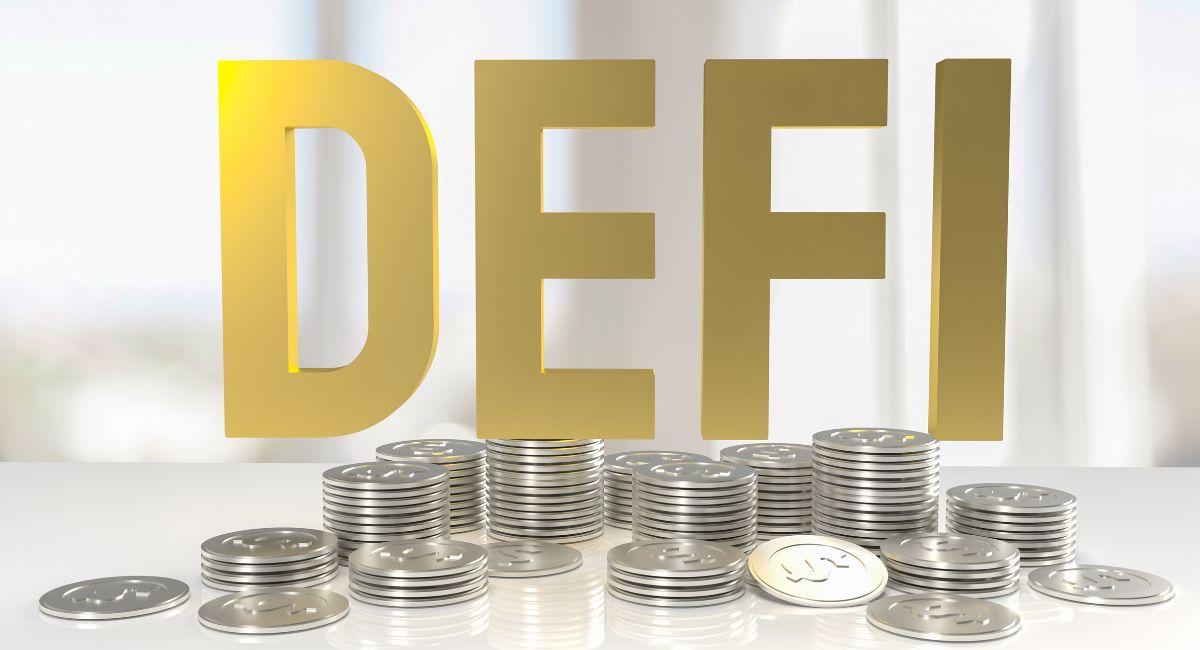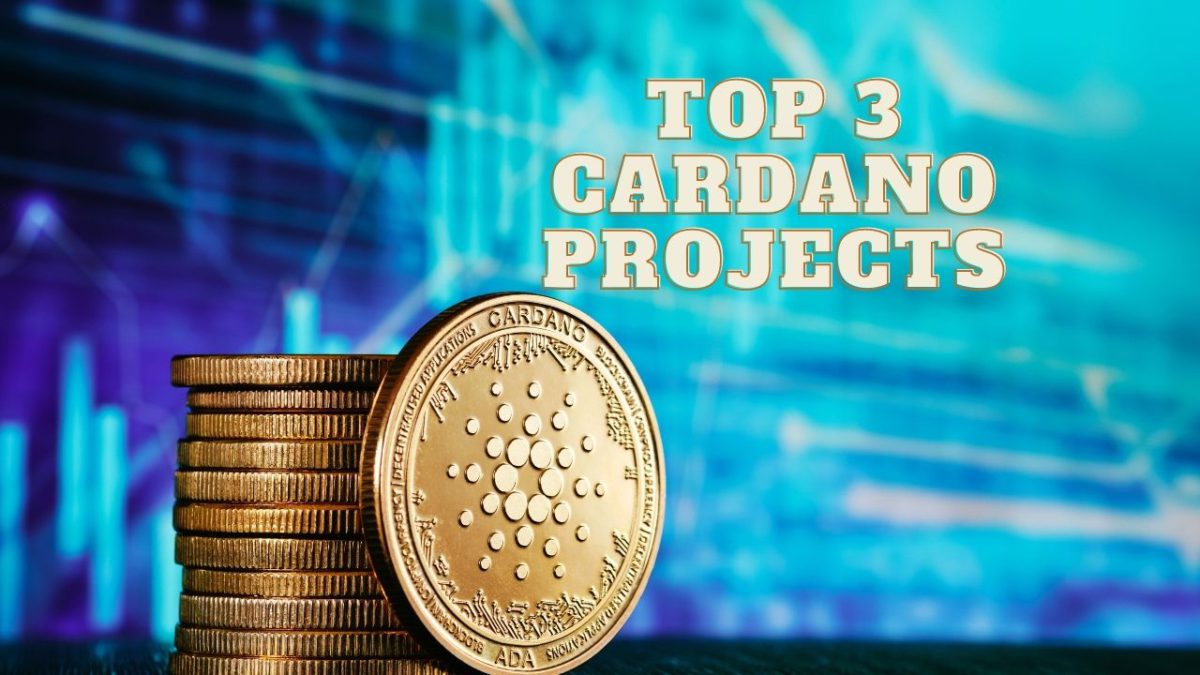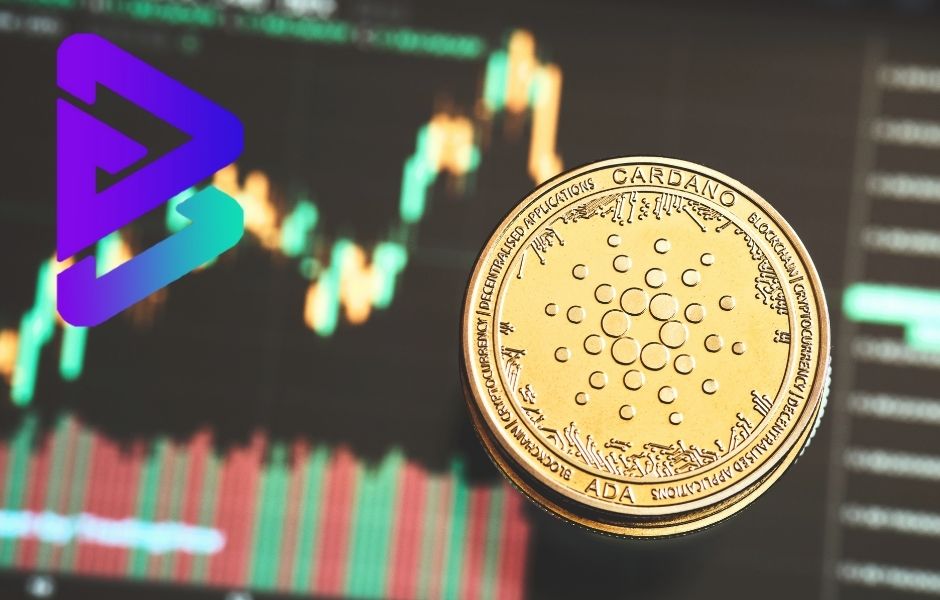Top 10 Intriguing Reasons DeFi Is The Future Of Online Payment In Coming Years
Decentralized Finance (DeFi) represents a transformative shift in the financial landscape, leveraging blockchain technology to offer a wide array of financial services without the need for traditional intermediaries. At its core, DeFi aims to democratize access to financial tools and services, making them accessible to anyone with an internet connection and enabling greater financial inclusion worldwide.
One of the foundational principles of DeFi is the use of smart contracts, self-executing contracts with terms directly written into code. These smart contracts automate financial transactions, removing the need for intermediaries and enabling peer-to-peer interactions. This decentralization not only reduces costs and inefficiencies but also enhances transparency and security, as transactions are recorded on a public blockchain ledger.
DeFi encompasses a diverse range of financial services, including lending, borrowing, trading, asset management, and derivatives trading, among others. Users can participate in these services directly from their digital wallets, using cryptocurrencies or digital assets as collateral or liquidity.
One of the most popular DeFi applications is decentralized lending and borrowing platforms. These platforms allow users to lend out their crypto assets to earn interest or borrow assets by providing collateral. Smart contracts automatically execute loan agreements and manage collateralization ratios, reducing counterparty risk and enabling global access to credit.
Decentralized exchanges (DEXs) are another prominent feature of the DeFi ecosystem. DEXs facilitate peer-to-peer trading of digital assets without relying on a central authority. Automated market-making algorithms and liquidity pools enable seamless and permissionless trading, fostering liquidity and price discovery across various cryptocurrency pairs.
Furthermore, DeFi offers innovative investment opportunities such as yield farming, liquidity mining, and staking. Users can earn rewards or interest by providing liquidity to decentralized protocols or locking up their assets in smart contracts. These opportunities attract capital inflows into the DeFi ecosystem, driving growth and innovation.
Despite its potential benefits, DeFi also faces challenges such as scalability, security vulnerabilities, and regulatory uncertainty. Scalability issues arise due to the high demand for blockchain resources, leading to network congestion and high transaction fees. Security vulnerabilities pose risks to user funds, as smart contracts are susceptible to bugs and exploits. Regulatory uncertainty adds complexity and compliance burdens, as DeFi platforms navigate evolving regulatory frameworks worldwide.
In conclusion, DeFi represents a groundbreaking innovation that has the potential to reshape the financial industry fundamentally. By leveraging blockchain technology and decentralized networks, DeFi offers greater accessibility, transparency, and efficiency in the global financial system. While challenges remain, the continued growth and development of DeFi promise to unlock new opportunities for financial inclusion, innovation, and economic empowerment on a global scale.
Also, read- Top 10 Amazing Ways DeFi Is Thriving In The Digital Age Without Any Support
Defi importance

Decentralized Finance (DeFi) holds profound importance in the global financial landscape due to its transformative potential and numerous benefits. Here are ten key reasons why DeFi is significant:
- Financial Inclusion: DeFi enables individuals worldwide to access financial services without relying on traditional banks or intermediaries. This empowers the unbanked and underbanked populations, providing them with opportunities for savings, lending, and investment.
- Global Accessibility: DeFi operates on blockchain networks, making financial services accessible to anyone with an internet connection, regardless of geographical location or socioeconomic status. This fosters financial inclusion on a global scale.
- Transparency and Trustlessness: DeFi platforms utilize blockchain technology, ensuring transparency, auditability, and immutability of transactions. Smart contracts automate processes, reducing the need for trust in centralized intermediaries.
- Permissionless Innovation: DeFi encourages innovation by allowing developers to build and deploy financial applications without requiring permission from central authorities. This fosters a vibrant ecosystem of decentralized protocols and projects.
- Decentralized Exchanges (DEXs): DeFi facilitates peer-to-peer trading through DEXs, enabling users to trade digital assets directly without intermediaries. DEXs offer increased privacy, security, and censorship resistance compared to centralized exchanges.
- Lending and Borrowing: DeFi lending platforms allow users to lend or borrow digital assets using smart contracts. This creates opportunities for passive income through interest-bearing accounts and access to liquidity for borrowers.
- Yield Farming and Staking: DeFi offers opportunities for users to earn rewards by participating in yield farming and staking. Users can provide liquidity to decentralized protocols or lock up assets in smart contracts to earn yields or governance tokens.
- Asset Management: DeFi protocols enable users to manage their digital assets through decentralized asset management platforms. Users can diversify their portfolios, rebalance holdings, and access various investment strategies.
- Derivatives and Financial Instruments: DeFi expands the range of financial instruments available to users, including derivatives, synthetic assets, and prediction markets. These instruments enable users to hedge risk, speculate on price movements, and gain exposure to different asset classes.
- Resilience and Security: DeFi platforms are resistant to censorship and single points of failure, as they operate on decentralized networks. This resilience enhances security and mitigates the risk of platform outages or disruptions.
Overall, It represents a paradigm shift in the financial industry, offering greater accessibility, transparency, and innovation compared to traditional finance. As DeFi continues to evolve and mature, its importance in shaping the future of finance and empowering individuals worldwide will only grow.
Defi in online payments

Decentralized Finance is increasingly intersecting with online payments, revolutionizing the way transactions are conducted across the digital realm. Unlike traditional payment systems that rely on centralized intermediaries like banks or payment processors, it offers a decentralized alternative that is transparent, efficient, and accessible to anyone with an internet connection.
In the realm of online payments, it provides several key advantages. Firstly, it enables peer-to-peer transactions without the need for intermediaries, allowing users to send and receive payments directly from their digital wallets. This eliminates the delays and fees associated with traditional payment methods, making transactions faster and more cost-effective.
Moreover, DeFi offers greater privacy and security compared to traditional payment systems. Blockchain technology ensures that transactions are recorded on a public ledger, providing transparency while protecting user privacy through pseudonymous addresses. Additionally, the use of smart contracts automates payment processes, reducing the risk of fraud and enabling trustless interactions between parties.
Furthermore, DeFi facilitates cross-border payments with ease. Stablecoins, which are digital assets pegged to fiat currencies like the US dollar, can be transferred instantly and at minimal cost across borders using DeFi protocols. This has significant implications for remittances and international trade, as individuals and businesses can bypass traditional banking channels and avoid exorbitant fees and delays.
Additionally, DeFi opens up new possibilities for micropayments and recurring payments. Smart contracts can be programmed to execute payments automatically based on predefined conditions, enabling subscription services, royalties, and other payment arrangements without the need for centralized intermediaries.
Overall, DeFi is reshaping the landscape of online payments by offering a decentralized, transparent, and efficient alternative to traditional payment systems. As DeFi continues to evolve and gain adoption, its impact on online payments will only grow, unlocking new opportunities for financial inclusion, innovation, and economic empowerment in the digital age.
Everyone with us in this crypto twitter are all making effort to add meaning into their lives.
— CryptoLord NE 📊📈 (@CryptoDefiLord) February 19, 2024
I do my best to engage any tweet I see on my TL either by liking or commenting.
It good to make people feel among and also help them in their journey to financial independence.…
Top 10 reasons the future of online payment resides with DeFi

The future of online payments is increasingly intertwined with Decentralized Finance (DeFi) for several compelling reasons:
- Decentralization: It operates on decentralized blockchain networks, eliminating the need for intermediaries like banks or payment processors. This decentralization reduces reliance on centralized authorities and fosters trustless transactions directly between users.
- Transparency: The transactions are recorded on public blockchains, providing transparent and auditable payment records. Users can verify transaction details and ensure the integrity of the payment process without relying on opaque third-party systems.
- Lower Fees: It transactions typically incur lower fees compared to traditional payment methods. By eliminating intermediaries and streamlining processes, It enables cost-effective transactions, particularly for cross-border payments and micropayments.
- Global Accessibility: It platforms are accessible to anyone with an internet connection, regardless of geographic location or socioeconomic status. This global accessibility facilitates seamless cross-border transactions and financial inclusion on a global scale.
- Instant Settlement: It transactions settle in real-time or near real-time, enabling instant transfer of funds between parties. This eliminates the delays and settlement periods associated with traditional payment systems, enhancing the efficiency of online payments.
- Privacy and Security: It offers greater privacy and security compared to traditional payment systems. Transactions are pseudonymous and recorded on immutable blockchains, reducing the risk of fraud, identity theft, and unauthorized access.
- Innovation: It fosters innovation in online payments by enabling the development of new financial products and services. Smart contracts allow for programmable payments, automated escrow services, and innovative payment solutions tailored to specific use cases.
- Financial Inclusion: It promotes financial inclusion by providing access to online payment services for underserved and unbanked populations. Individuals without access to traditional banking services can participate in DeFi platforms, opening up new opportunities for economic participation and empowerment.
- Interoperability: It protocols are interoperable, allowing users to seamlessly transfer assets and data between different platforms and ecosystems. This interoperability facilitates integration with existing online payment infrastructure and enables cross-platform functionality.
- Resilience: The platforms are resistant to censorship, downtime, and single points of failure, as they operate on decentralized blockchain networks. This resilience ensures the reliability and availability of online payment services, even in the face of external disruptions or attacks.
The future of online payments resides due to its decentralization, transparency, lower fees, global accessibility, instant settlement, privacy, security, innovation, financial inclusion, interoperability, and resilience. As it continues to evolve and gain adoption, it will play an increasingly integral role in shaping the future of online commerce and financial transactions.
Conclusion
In conclusion, the future of online payments is poised to be fundamentally transformed by Decentralized Finance. With its emphasis on decentralization, transparency, lower fees, global accessibility, instant settlement, privacy, security, innovation, financial inclusion, interoperability, and resilience, DeFi represents a paradigm shift in how financial transactions are conducted in the digital age.
By eliminating the need for intermediaries and centralized authorities, it empowers individuals worldwide to transact directly with one another, fostering trustless interactions and reducing reliance on traditional banking systems. This decentralization not only enhances the efficiency and security of online payments but also promotes financial inclusion by providing access to financial services for underserved and unbanked populations.
Furthermore, its innovative features, such as programmable payments, automated escrow services, and interoperable protocols, enable the development of new payment solutions tailored to specific use cases. This fosters continuous innovation in online payments, driving the evolution of digital commerce and financial services.
Moreover, its resilience to censorship, downtime, and single points of failure ensures the reliability and availability of online payment services, even in the face of external disruptions or attacks. This resilience is critical for maintaining the integrity and functionality of online payment systems in an increasingly interconnected and digitized world.
As it continues to evolve and gain adoption, its impact on the future of online payments will only grow. By providing a decentralized, transparent, and inclusive alternative to traditional payment systems, DeFi has the potential to revolutionize the way financial transactions are conducted, unlocking new opportunities for economic participation, innovation, and empowerment on a global scale.
Stay informed with daily updates from Blockchain Magazine on Google News. Click here to follow us and mark as favorite: [Blockchain Magazine on Google News].
Get Blockchain Insights In Inbox
Stay ahead of the curve with expert analysis and market updates.
latest from tech
Disclaimer: Any post shared by a third-party agency are sponsored and Blockchain Magazine has no views on any such posts. The views and opinions expressed in this post are those of the clients and do not necessarily reflect the official policy or position of Blockchain Magazine. The information provided in this post is for informational purposes only and should not be considered as financial, investment, or professional advice. Blockchain Magazine does not endorse or promote any specific products, services, or companies mentioned in this posts. Readers are encouraged to conduct their own research and consult with a qualified professional before making any financial decisions. The featured image used is just a creative depiction of the title and it does not intend to hurt sentiments of any person or institution. If it hurts anyone sentiments, please do not hesitate to reach out to Blockchain Magazine.

 Bitcoin
Bitcoin  Ethereum
Ethereum  XRP
XRP  Tether
Tether  Solana
Solana  USDC
USDC  Dogecoin
Dogecoin  Cardano
Cardano  Lido Staked Ether
Lido Staked Ether  TRON
TRON  Wrapped Bitcoin
Wrapped Bitcoin  Chainlink
Chainlink  Wrapped stETH
Wrapped stETH  Avalanche
Avalanche  Sui
Sui  Stellar
Stellar  Hedera
Hedera  Toncoin
Toncoin  Shiba Inu
Shiba Inu  LEO Token
LEO Token  Hyperliquid
Hyperliquid  Litecoin
Litecoin  Bitget Token
Bitget Token  WETH
WETH  USDS
USDS  Polkadot
Polkadot  Bitcoin Cash
Bitcoin Cash  Ethena USDe
Ethena USDe  Wrapped eETH
Wrapped eETH  Uniswap
Uniswap  MANTRA
MANTRA  Ondo
Ondo  Pepe
Pepe  Aave
Aave  Monero
Monero  NEAR Protocol
NEAR Protocol  WhiteBIT Coin
WhiteBIT Coin  Mantle
Mantle  Official Trump
Official Trump  Aptos
Aptos  Dai
Dai  Internet Computer
Internet Computer  Ethereum Classic
Ethereum Classic  Bittensor
Bittensor  Cronos
Cronos  OKB
OKB  POL (ex-MATIC)
POL (ex-MATIC)  Gate
Gate 




